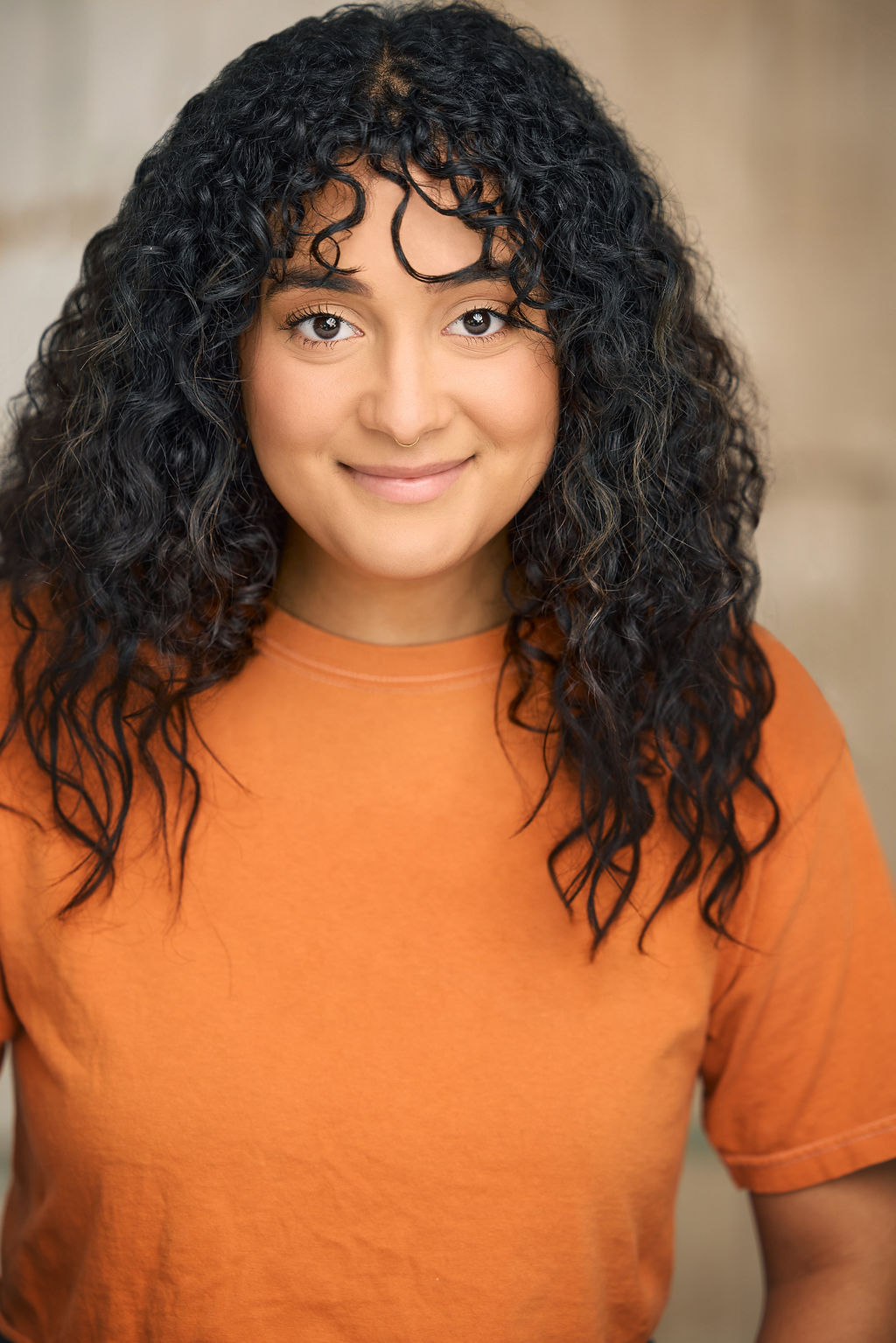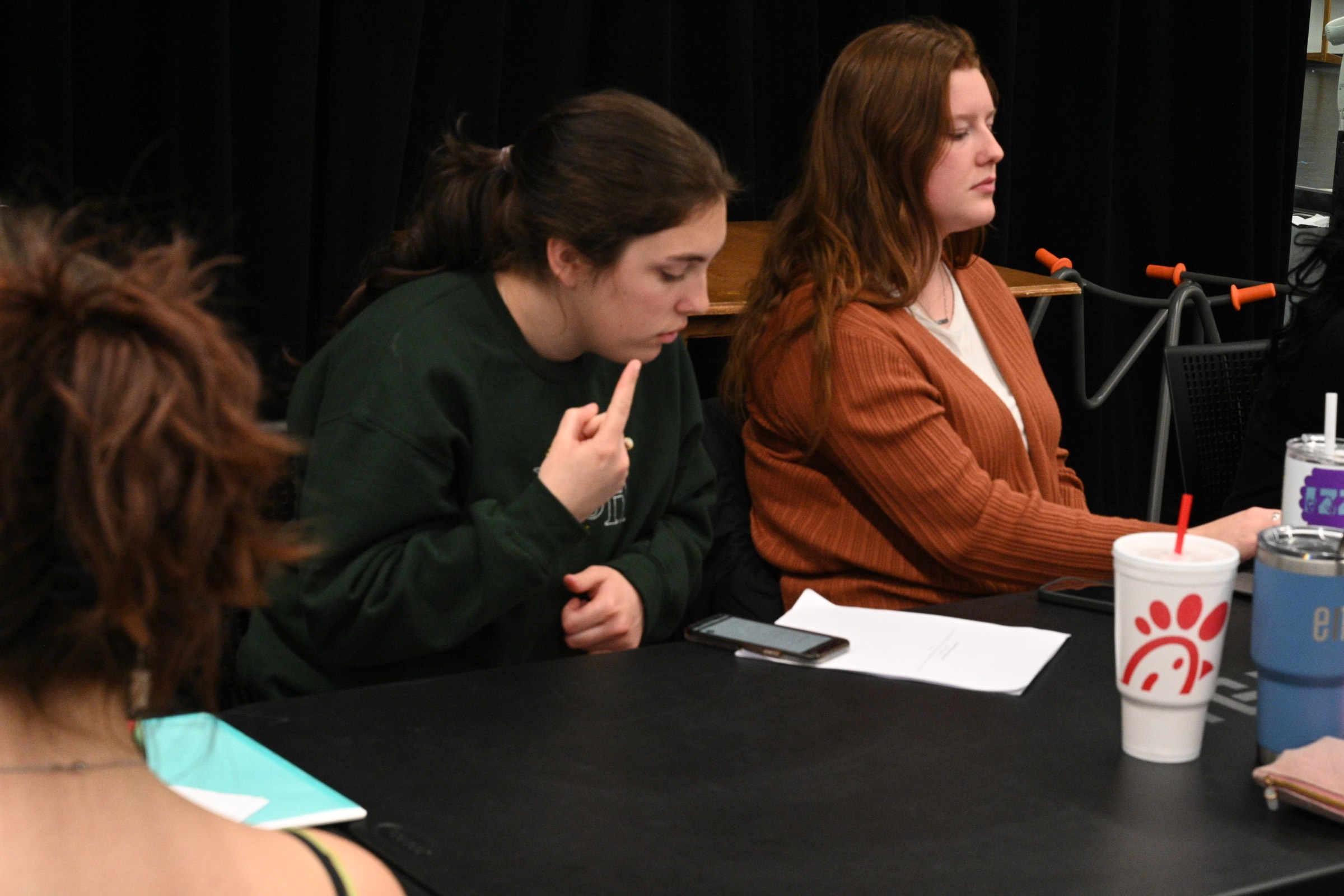
Each spring, Frontier Fest features new works by theatre and dance students. This year, the School of Theatre & Dance is partnering with student American Sign Language (ASL) interpreters from the Department of Classical& Modern Languages & Literatures (CMLL) to make some of these works accessible to the deaf community.
First-year MFA Performance and Pedagogy student Natalia (Nati) Gonzalez is directing four ten-minute plays, two of which will include ASL interpreters. Last fall, Nati worked with the BurkTech Players, a group of artists comprised of students from the Burkhart Center for Autism Research and Education and the School of Theatre and Dance and performed alongside shadow interpreters—ASL interpreters who are on stage with the actors and interpreting for a specific character.
What was it like to work with shadow interpreters?
It was a good experience to learn about ASL and the deaf community.
This time you are directing. Does working with ASL interpreters change your process?
I wouldn't say it changes the process, but it does impact blocking choices. Going into the rehearsal process, I blocked a rough skeleton of the show before the interpreters joined us so that we could just plug them in and start running the show. From there, I adjusted the blocking to make it easier for the audience to see the interpreters and the actors from all sides of the stage.
What's it like having the interpreters in rehearsal?
I like having the interpreters in the room because they keep me in check. In one of the shows, we have an actor humming off stage. I didn't realize that the interpreter must step on stage and sign for our deaf audience that humming is happening in the back. I love having them in the process.
Shadow interpreters focus on signing lines for a specific character. Are they given a copy of the script to practice and learn on their own?
 When the interpreters came to rehearsal the first time, they had already memorized
the lines for the character they were interpreting because it was easier for them.
I joked at rehearsal that my interpreters were going to keep my actors on text because
they knew the lines already.
When the interpreters came to rehearsal the first time, they had already memorized
the lines for the character they were interpreting because it was easier for them.
I joked at rehearsal that my interpreters were going to keep my actors on text because
they knew the lines already.
Incredible strides are being made to make these shows more accessible.
We want to make theatre as accessible as we can. Traditional ASL interpreters stand to the side of the stage, requiring deaf audiences to look back and forth between the interpreter and the stage. Shadow interpreters, like those in two of the 10-minute plays, follow the actors so both are seen simultaneously.
This seems like a good partnership between CMLL and Theatre & Dance students. Would you like to see interpreters for other Theatre & Dance productions?
ASL interpretation can work for any show, and I'd like to see it used more. Any show can have interpreters, although not every show lends itself to shadow interpretation.
